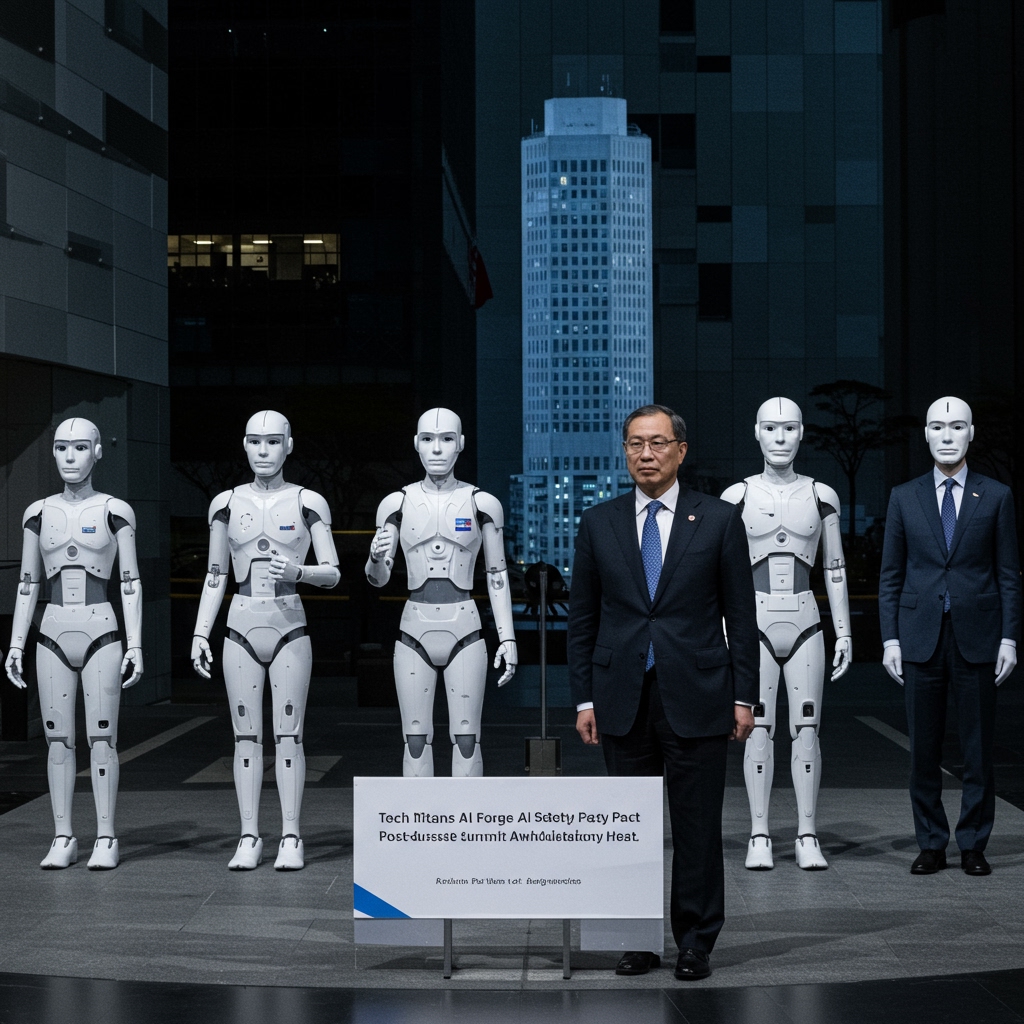Tech Giants Unite on AI Safety Following Critical Brussels Dialogue
In a significant development signaling a proactive stance from the technology sector, a consortium of leading companies, including Google, Microsoft, and OpenAI, publicly announced a new joint safety accord on April 25th. This pivotal announcement, made during a press conference in Geneva, comes hot on the heels of the urgent AI Safety Summit held in Brussels just two days prior, on April 23rd.
The Brussels summit brought together global leaders, policymakers, and experts to discuss the accelerating pace of artificial intelligence development and the accompanying risks. Concerns ranged from existential threats and potential misuse of advanced models to biases embedded in algorithms and the impact on employment and society. The urgency of the discussions underscored the growing consensus that rapid advancement in AI necessitates equally rapid development of safety guardrails and responsible deployment strategies.
Responding directly to the momentum and regulatory pressure highlighted by the Brussels gathering, the newly formed industry alliance aims to preemptively address critical safety challenges. The joint accord represents a concerted effort by these major players to demonstrate accountability and foster a safer AI ecosystem from within the industry itself, potentially influencing the trajectory of future governmental regulations worldwide.
Core Commitments: Testing, Oversight, and Investment
The cornerstone of the joint safety accord is a commitment to establishing standardized testing protocols for advanced AI models. Recognizing the complexity and rapid evolution of AI capabilities, the signatories believe that a unified approach to evaluating model safety, robustness, and potential risks is essential. Currently, testing methodologies can vary significantly between companies, making it difficult for external stakeholders, including regulators and the public, to assess potential harms consistently. The accord pledges to develop and implement these standardized tests, providing a clearer benchmark for evaluating the safety performance of frontier AI models before and after deployment.
Beyond technical testing, the accord also emphasizes the need for increased transparency and external validation through the establishment of independent oversight bodies. While details regarding the structure and composition of these bodies are still being finalized, the intent is clear: to create mechanisms for impartial review of AI development processes, safety protocols, and model evaluations. These independent bodies could play a crucial role in building public trust, providing expert analysis, and offering recommendations to enhance safety measures beyond internal company processes.
A substantial financial commitment underpins the ambitious goals outlined in the accord. The signatory companies have collectively pledged to invest $500 million over the next two years. This significant capital injection is earmarked for dedicated safety research and the implementation of responsible deployment strategies. The investment aims to accelerate breakthroughs in areas such as AI alignment, interpretability, robustness against adversarial attacks, and methods for identifying and mitigating societal harms. Furthermore, it will support the development and implementation of operational frameworks to ensure that advanced AI models are deployed in ways that minimize risks and maximize benefits for society.
Addressing Global Regulatory Concerns Through Self-Regulation
The timing and content of the accord clearly indicate a response to increasing governmental scrutiny worldwide. Nations and international bodies are grappling with how to regulate powerful AI technologies effectively. While some advocate for stringent, top-down regulations, others encourage industry self-regulation or co-regulation models. This joint accord can be viewed as a strategic move by the tech leaders to demonstrate that the industry is capable of taking meaningful steps towards self-governance on safety issues, potentially influencing the shape and scope of impending legislation.
The accord directly aims to address concerns raised by global regulators. Issues such as ensuring AI systems are controllable, preventing the generation of harmful content, managing potential job displacement, and ensuring fairness and equity in AI applications have been central to regulatory discussions across continents. By committing to standardized testing, independent oversight, and substantial investment in safety research, the signatory companies are signaling their intent to proactively tackle these critical challenges.
This initiative represents a significant step towards industry self-regulation in a rapidly evolving technological landscape. Historically, major technological shifts have often outpaced regulatory frameworks, leading to calls for greater governmental intervention. By forming this alliance and making concrete commitments, Google, Microsoft, OpenAI, and their partners are attempting to set a precedent for responsible innovation and collaboration within the AI sector. The success of this accord will likely be judged by its ability to translate pledges into tangible safety improvements and foster greater trust among policymakers, the public, and the broader AI research community. The accord signifies an acknowledgement by these industry titans that the development of advanced AI is not just a technical challenge, but also a profound societal responsibility.





